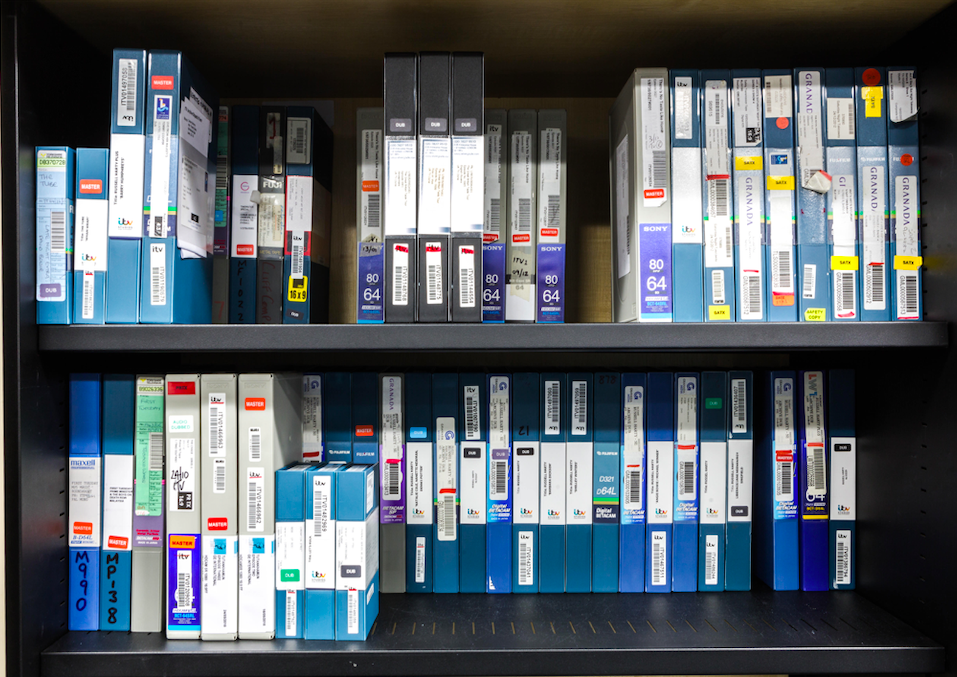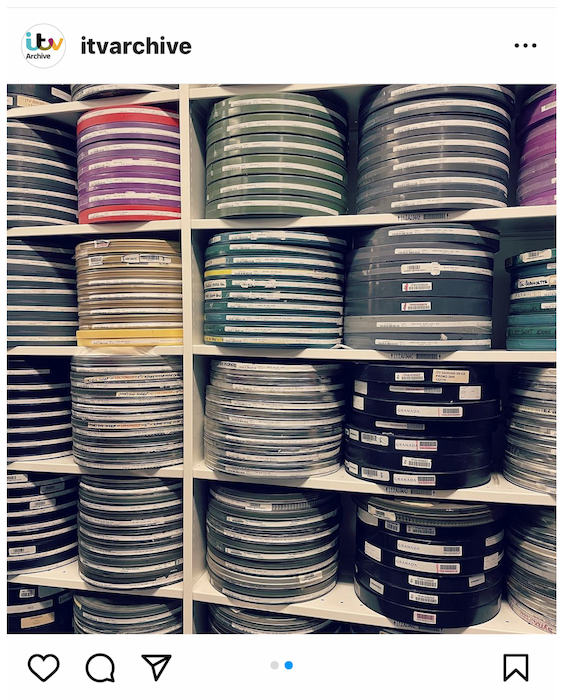Should I digitise my film archive?
16 October 2023SHOULD I DIGITISE MY FILM ARCHIVE?
Should I digitise my film archive? Preserving historical film and tape archives is a crucial task to safeguard our cultural heritage for future generations. As technology continues to advance, the option of digitising film archives has gained popularity. However, like any transformative process, there are always both pros and cons to consider. Below is a brief summary of some of the current factors you may take into account before digitising your film and tape archive.
Pros:
1. Preservation and Restoration: Digitisation offers a way to preserve ageing film and tape materials that are all susceptible to degradation and destabilisation over time. By converting them into a digital format, we can safeguard the content from physical deterioration, such as fading, tearing, or magnetic decay. It also provides a platform that enables restoration techniques to enhance the quality of the film and repair damage.
2. Accessibility and Distribution: Film archives can be accessed and distributed much more conveniently when digitised. With a few clicks, users worldwide can explore and enjoy archived content without any need for physical access to the original copies.
This accessibility allows for wider dissemination by both educational and commercial bodies, benefiting researchers, scholars, students, and the general public.
3. Searchability and Metadata: Digitised film archives can be accompanied by comprehensive metadata, making it easier to organise and search for specific content. Descriptive information, keywords, and timestamps can be added, enabling efficient retrieval of desired footage. This enhanced searchability saves time and effort in locating specific scenes or information within the archives.
4. Space and Cost Efficiency: Physical film and tape archives require significant storage space and incur substantial maintenance costs. Digitisation eliminates the need for bulky storage facilities, reducing those associated expenses.
Additionally, digital copies can be replicated and stored on multiple devices, ensuring easier backup and disaster recovery measures.
Cons:
1. Time and Cost: Digitising film and tape archives can be a labour-intensive and costly process. It requires specialised equipment, expertise, and considerable time to convert each item. The costs associated with digitisation, including equipment investment, personnel, and post-processing, should be carefully considered, especially for extensive archives.
2. Quality and Authenticity: The digitisation process may introduce certain limitations and compromises on the original content quality. Factors such as resolution, colour accuracy, and audio fidelity might be impacted during the conversion. Furthermore, there is a certain risk of losing the unique aesthetic and visual characteristics associated with the original medium, potentially affecting the authenticity of the archived material.
3. Format Obsolescence: While digital formats offer convenience, they are subject to technological advancements. Formats that are popular today might become obsolete in the future, necessitating the periodic migration of the archives to newer formats to ensure long-term accessibility. This ongoing effort might require ongoing investment and monitoring to prevent the loss or degradation of the digitised content.
4. Legal and Copyright Concerns: Digitising film and tape archives may raise legal and copyright issues, particularly for materials that are subject to restrictions or licensing agreements. Clearances and permissions need to be obtained to avoid
infringing upon intellectual property rights, which can be sometimes a complex and time-consuming process, but arguably copyright issues will always arise regardless of the media format.
In conclusion, digitising film and tape archives presents numerous advantages, such as preservation, accessibility, searchability, and cost efficiency. However, it is essential to consider the potential ramifications, including time, cost, potential quality compromises, format obsolescence, and legal concerns. Thankfully, by consulting with a specialist company who offer professional digitisation services, in-house award winning restoration and colour grading teams coupled with decades of hands on experience, many of the inherent risks associated with this process can be easily mitigated.
Our team has a real passion and commitment to the preservation of this art form and they are always happy to offer no obligation advice and insight whenever it is required.
If you would like to get in touch and learn a little more, please do not hesitate to contact us.
ITV Content Services
ITV Archive
104 Kirkstall Road
Leeds
LS3 1JS
Email : content.delivery@itv.com




